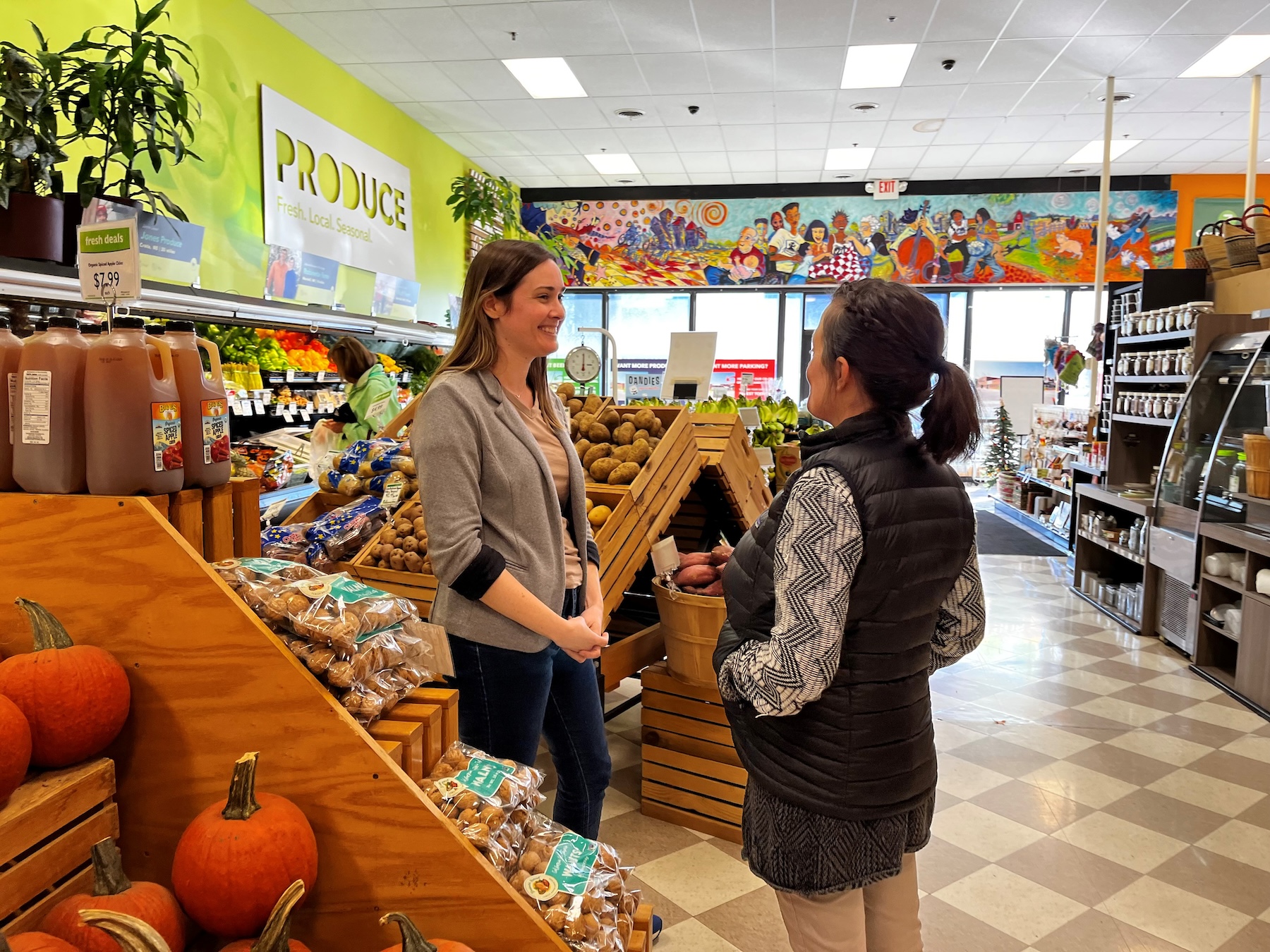
Vanessa Wielenga, Food, Nutrition & Health Extension educator and a lead member of Double Up Food Bucks
December 8, 2023
Nebraska Double Up Food Bucks (DUFB) doubles the value of Supplemental Nutrition Assistance Program (SNAP) benefits spent on fresh produce, with an emphasis on locally grown produce, at participating farmers’ markets and grocery stores. For every SNAP dollar spent on fresh produce at a participating site, the customer gets a dollar to spend on more fresh produce, up to $20 a day.
“Thanks for doubling the fruits and vegetables; they are very useful for cooking the foods for my family; thank you,” said Las Nenas a customer.
The program, established in 2017 initially spanning four sites in Lincoln, has blossomed into a robust network. Last year, 3,368 families across 14 counties used the DUFB program at 23 sites. All together, they purchased over $628,973 worth of healthful food — $377,116 on SNAP and/or DUFB qualifying items, $251,857 using DUFB to buy produce.
The program’s success is underpinned by several key factors, including committed administrative and fiscal agencies, strategic partnerships with healthcare systems, inclusive community collaborations and a flexible program framework.
Vanessa Wielenga, Food, Nutrition & Health Extension educator and a lead member of Double Up Food Bucks, emphasizes the project’s broader impact, stating, “Double Up Food Bucks helps local food systems with the triple win — Nebraskans get more healthy food on the table, farmers gain new customers, and communities get an economic boost and greater food security for fresh produce.”
She also notes that “the importance of strong, trusting, and mutually beneficial partnerships is the throughline for success in securing funding, operating inclusive incentive technologies, maximizing staff and partner expertise, and assessing retail site capacity to ensure equitable practices.”
During the 2023 season, 50 farmers accepted NDUFB at seven farmers’ markets and one mobile market. Between March and August 2023, SNAP shoppers spent $106,000 more than last year at five rural grocery stores that implement NDUFB. Presumably, this represents federal benefits that were previously being spent at other stores, such as national or regional chains. Now those funds are being spent with local businesses that have NDUFB available to customers. This benefits those grocers and all Nebraskans in those rural communities.
Hannah Schielke, Nebraska Extension SNAP-Ed assistant, found local store owners to be especially appreciative of DUFB, stating, “The store owner is very grateful to be part of the DUFB program because she loves being able to provide fresh fruits and vegetables to those that might not otherwise be able to afford it.”
Additionally, surveyed store owners mentioned an array of benefits associated with having DUFB at their stores. These benefits include increased business and better retention rates, showing customers and the larger community that they care, and giving more the opportunity to eat healthy.
Many participants echoed their appreciation through a customer survey this year; an individual said, “I like this program a lot. You save on fruits and vegetables. It is an extra help.”
The importance of braiding multiple approaches and areas of expertise when implementing and/or expanding SNAP incentive programs across urban and rural settings cannot be understated. Partnerships, both in-kind and cash contributions, are critical to the sustainability and continued success of Nebraska Double Up Food Bucks.